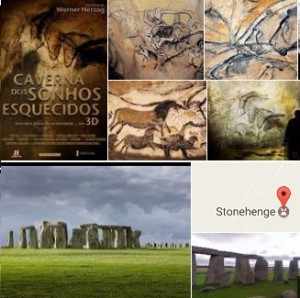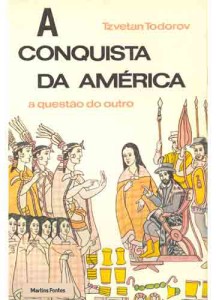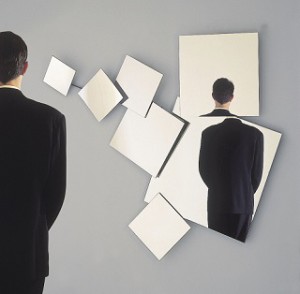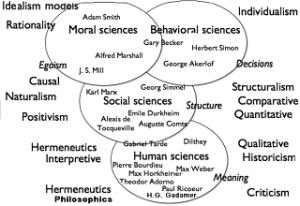
Arquivo para February, 2017
Barber shops, cafes and nets
According to Peter Burke, the locu s of religious and political discussions in 1620 was the barbershops, quotes the Italian writer Ludovico Zuccolo, who evoked them full of ordinary people discussing the religious problems and the attitudes of the rulers.
s of religious and political discussions in 1620 was the barbershops, quotes the Italian writer Ludovico Zuccolo, who evoked them full of ordinary people discussing the religious problems and the attitudes of the rulers.
The first great wave of reading was to interpret the Bible, the same that Galileo had claimed and which is still ignored today, the same Ludovico said that as the number of illiterates fell, they were common in the sixteenth century in Italy, for example, shoemakers , Dyers, masons, and housewives, claim the right to interpret the sacred scriptures.
In the 1620s religious concerns were compounded by political concerns. Ludovico Zuccolo, an Italian writer, evoked the image of the barber shops full of ordinary people discussing the measures of the rulers.
Anyone who thinks that there is an excess of information today, as soon as the books began to be printed at more reasonable prices, one already complained about the number of existing books and how one would read them in a single life, in 1975 for example, 1745 The Vatican library, housed only 2,500 volumes, in the seventeenth century the Bodleian Library of Oxford had 8,700 titles, and the imperial library of Vienna, 10,000.
From the barbershops to the cafés, Café de La Paix is the scene of many novels, paintings and poems, Guy de Maupassant and Emile Zola frequented it, the proximity to the Opera Gamier (next door) made it a kind of Museum, In 1975 it was considered a historical site by the French government.
Would cybercafes be your descendants? They lived with libraries and other places of dialogue and culture, they were important in the “Arab Spring,” especially in Libya and Egypt, there were violence events with heroes who posted denunciations in these cybercafes.
Both the uprising in Egypt and Libya were recorded in numerous social media, a good example is the video with 2,000 deaths (video of OneDayOnEarth), reveal the taste of the dictators for the worship of the person and vertical media.
Long before the outbreak of the war in Syria, looking at the comments on the networks, we knew that there was a powder keg (see our post 2012), and also a blogger Tal al-Molouhi, arrested in 2009, was one of the fuses for the uprising.
The governments and owners of vertical media do not accept the influence of the networks, because it is their bankruptcy, but now even the authoritarian Trump does not give ball to them, makes its own media, of course it does not go unanswered, in social media media Is losing ugly.
Two findings: technology and religion
We must read the history of the present moment backward, that is, in the opposite sense,  although a dose of “desantropomorphization” is always important, that is, to attribute the whole foundation of the concepts studied to man alone, without considering his surroundings; with this the use of technology for its handling.
although a dose of “desantropomorphization” is always important, that is, to attribute the whole foundation of the concepts studied to man alone, without considering his surroundings; with this the use of technology for its handling.
This means that man is what he does with nature and with his fellows around him, the important relation to the Other that the current philosophy emphasizes.
Taking a leap into history, returning to 7,000 BC, we find the Stonehenge monument in central England, and recently (in the 1990s) a cave was found with paintings dating to 30,000 BC, the Chauvet Cave.
Several studies of archeology, Stonehenge is more advanced, point two interesting facts: the technological importance, the stones of Stonehenge were moved by England from Wales, and the religious aspect: it is known that that circle is part of larger circles of Where several inhabitants came for some sort of “religious” rite.
The second discovery is more intriguing, a true art gallery was found in Chauvet, showing an already refined technique of painting and what Werner Herzog called “homo spiritualis” in his film “The Cave of Forgotten Dreams“, the only film allowed Until today of this gallery of prehistoric art.
It is important to know that both English researchers and archaeologists who research Stonehenge (see our post) and Werner Herzog who filmed Chauvet are not religious people, but the realization that there was something “spiritual” on both monuments makes us think.
Man has always lived immersed in a spiritual sphere, which Teilhard Chardin called the Noosphere and used technology, so the anthropomorphic principle is false, we are nature.
Forgive me Todorov!
I discover only today, who died on February 7 of this year in Paris, Tzvetan  Todorov, philosopher and literary critic bulgáro, little known, but not less important for our century.
Todorov, philosopher and literary critic bulgáro, little known, but not less important for our century.
I have as his strongest phrase, one that made him a prophet of the invasion of Islam in Europe, he said long before the emigration crisis: “We can measure our degree of barbarity or civilization by how we perceive and welcome others, the different . ”
An interview he gave in France (Radio France Culture, 2009), helps to see this prophecy of Todorov: “” I wrote my first book of History of Ideas, which is called ‘We and the Others’. It was a work on the plurality of cultures analyzed from the point of view of the French tradition. I studied authors from Montaigne (…) to Levi-Strauss. I have tried to see how these authors treated this difficult question for us today: the unity of humanity and the plurality of cultures. In this series of authors, I discovered that the ones I felt closest to were the humanists. ”
In Brazil, he gave an interview to the Borders of Thought in 2012, in which he stated: “I realized that, as a historian and essayist, I took advantage of literature more than literature studies, and read novels, poetry, and Different histories than literary analyzes or written theses on literature, which seem to me nowadays to be directed almost exclusively to other specialists in literature. While the novel interests everyone, and I feel closer to everyone than the experts. ”
His most famous books are: The conquest of America: the question of the Other, São Paulo, SP: Martins Fontes, 1982 (pdf), The Man Uprooted. São Paulo: Editora Record, 1999, The Fear of the Barbarians: beyond the clash of civilizations. Petrópolis: Editora Vozes, 2010, The Intimate Enemies of Democracy. São Paulo: Companhia das Letras, 2012, Life in common: essay on general anthropology. São Paulo: Unesp Publishing House, 2014.
Lesser known books, but no less important: I consider a classic the book Theories of the symbol. São Paulo: Editora Unesp, 2014, Symbolism and interpretation. São Paulo: Unesp Publishing, 2014 and Theory of literature: texts of the Russian formalists. São Paulo: Unesp Publishing House, 2013.
He died at age 77, in the city of Paris, was born in march 1st , Sofia, Bulgarian in 1939, though considered within the structuralist chain, without thought transcended it and is one of our important contemporaries to be read.
I share with her the idea that both fascism and Stalinism stem from the idea that we have been giving it powers over citizens, who have difficulty controlling it.
He received in 2008 the Prince of Asturias Award for Social Sciences, according to the document for representing “the spirit of unity of Europe, East and West, and commitment to the ideals of freedom, equality, integration and justice.”
Translate into simple things can complicate
Networks are simple, but any analysis using even simple concepts such as  “weak links,” “bridges,” “centrality,” and “degrees of separation” can, as the number of actors in a network increases, exponentially increase its complexity.
“weak links,” “bridges,” “centrality,” and “degrees of separation” can, as the number of actors in a network increases, exponentially increase its complexity.
There are many everyday reasonings that lead to this misguided thought, the simple idea that life, its origin in the universe, what we do and what we are, has simple answers leads to a mistaken simplistic reasoning, from the scientific to the religious.
The idea that God exists or not for example is complex, because its three structuring elements are not simple: faith that is belief in what is not evident (not so simple), hope whose element can often arrive at the absurdity that is – the same in situations of despair, war or any extreme gravity; And finally: charity (in the sense of agape love) which is perhaps the most impossible thing to codify, yet easy to feel how much it really is in her presence.
But scientific reasoning is the most complex, from the formulas of reductionists such as Wilhem Ockham, English nominalist of the eleventh century who created the famous Ockham Razor, which if it is between two explanations of a certain object, I get the simplest, but it questions remains: who guarantees that the correct explanation is not the complex one.
Nominalism was fought by the realists, and the fundamental problem is whether or not there are universal, which are realities in themselves, and transcendent in relation to private ones, that is, the qualities (Plato enunciated the formula universais ante rem), or Properties since things are immanent qualities (for Aristotle: university in re).
From Duns Scotus, who called the razor principle of economics (of reasoning?) And later Descartes and Kant, although Kant’s masterpiece was a critique of Descartes: Critique of pure reason, but what lies at the base Of this discourse, is sometimes forgotten, or neglected: subjectivity, the transcendent, and the faith.
Duns Scotus, who is at the origin of this thought, curiously asserts that the truths of faith could not be understood by reason, the contrary that had been said by Thomas Aquinas, which was realistic, and what Kant desires in criticizing “pure reason” is Fact that it can not subsist on its own, needs to “transcend” to the object, creates a subjectivism of its own to which some fundamentalist currents will associate, Kant was a descendant of Puritan Protestants.
His task at the epistemological level was to try to make a synthesis between Descartes and Leibniz’s rationalism and the empiricism of Hume, Locke and Berkeley, but he will be especially useful to nascent liberalism, although this connection is complex, one can simplify it to taste Of simplism: to separate subject and object.
Yes, it is not only this, but Hegel will finish the task of liberal idealism: to construct an eternal idea of State, to organize religion in a way that is convenient to “subjectivism”, removing it from concrete and objective things, and finally to create a “Phenomenology of the Spirit” .
Those who wish to make this understanding a reductionist and simplistic task will read history as those who wished to write it did so, separate the subjective: religious, historical, political, and even religious, from concrete historical consciousness: facts, miseries and corruptions .
The apology of ignorance, the absence of deep thought serve whom? Post-true mentality.
Latin America regulate IoT or not
IoT (internet of Things) is there, cars, clocks, medical equipment and other devices  are already on the market, this should grow to the full connection between things that communicate.
are already on the market, this should grow to the full connection between things that communicate.
According to data from the 5G Americas report “Internet de las Cosas en América Latina” (made in the Spanish language), the concern over excessive regulation may impede the business model, while in Brazil, experts point to the contrary: the need for urgent regulation, Who is right?
Both of them, but it takes a matter of common sense, in general in Brazil it regulates to the shape of the pins of the outlet (a joke, but it is true), while abroad the concern is with security and standardization for everyone to adopt similar measures .
The main concern should go to the sense that it takes a lot of attention not to prevent the advancement of a new business model while ensuring more security, but without panic and exaggeration, nothing is totally safe, but of course it is necessary to adopt measures, more Equipment will mean less security.
According to the 5G Americas report, through one of its director José Otero: “The risk of excessive or ill-conceived regulation could delay the enormous growth opportunities in the Internet of Things. For this reason, it is necessary that the entire ecosystem of actors dialogue and collaborate with regulators on this important technological advance. “
According to a Machina Research consultant, Andy Castonguay, if the fragmentation and complexity of the IoT system and its many technological approaches make the deployment a challenge, it will be somewhat dangerous if regulators are prohibitive in their mandates or if they favor Technologies.
One of the main considerations regarding public policies in the sector should be made considering the sovereignty and privacy of information and for security
What did you have before the big bang?
Wow, did anyone decide to answer this? And other questions, “why are we here?”, “When the universe began?” And “how?”, But the question that most troubles us no doubt is “what happened before the big bang?” God’s idea then is plausible.
“When the universe began?” And “how?”, But the question that most troubles us no doubt is “what happened before the big bang?” God’s idea then is plausible.
If you read this be clear that I will not answer, my answer already exists and it’s religious: God, but I read in Gizmodo that Sean Carroll of the California Institute of Technology. Carroll gave a lecture last month at a biannual meeting of the American Astronomical Society in the town of Grapevine, Texas, where he talked about possible pre-Big Bang theories that could give rise to a universe similar to ours.
Of course this is just a speculation and not even a theory, because Carrol stated that “To date, these are not established laws of physics that we do not understand or check at all,” another physicist who was with him Peter Woit Went further, “we do not understand what is happening in this case, … we really are in the dark.”
But there are things that we can say, for example, to that of entropy, the more the universe expands the more it goes into disorder, in fact it has a “disorder” of very low nature, that is to say, it happens very slowly, For example, a bomb near a pile of sand that exploded and scattered all the sand, but soon afterwards the “universe” would rearrange these sands again apparently with no help and no apparent reason to do so.
A student of PhD, Stefan Countryman, a student of Columbia, explained to the site that the Big Bang could have released a large mass of entropy, but unlike galaxies and clusters of galaxies, they all seem to be organized with huge voids Of black spaces (mass and dark energy) between them, then we have order.
This then means that the Universe that is little messed up, before the Big Bang could be even more tidy, we could say a “perfect order,” my interpretation, which physicists say is like this: “There are a lot of people who think the beginning of Universe was simple, calm and without much thing, with small undulations, and that this is the natural place for the beginning of the universe “, but it is not, what would be probable, would be a very branched” multiverse “, that is, Branched and unconnected bodies, but at the same time “connected”.
This well-accepted but incomplete theory is called the “Big Bounce,” or an “inflation” theory, an image made up of infant universes (those arising from inflation) coming out of the parent universe as shown above, with copyright Jason Torchinsky, author of the figure above.
Historical consciousness absent
There are two conceptions that mark ideas about contemporary history: one of positivist reasoning we owe to Karl Popper, who misrepresents Karl Marx, but he wrote against “historical determinism” even though he wanted to make his theory a “scientific socialism “The other, which poses a positivist and skeptical view of possible changes and transformations within historical consciousness, such as the end of history.
of positivist reasoning we owe to Karl Popper, who misrepresents Karl Marx, but he wrote against “historical determinism” even though he wanted to make his theory a “scientific socialism “The other, which poses a positivist and skeptical view of possible changes and transformations within historical consciousness, such as the end of history.
There are those who call all this from “practice” in opposition also incorrect to theory, because nothing more theoretical than a bad practice and nothing more practical and present in life than a good theory.
The importance of rethinking historical consciousness, not instrumentalized and in deep dialogue with humanity, comes from Hans-Georg Gadamer, although the proponents of the “scientific-historical” currents above say that this is only a theoretical reflection of history, for That their practice is so bad and of little fertility.
Is there historical being? Do we conceive ourselves with this being? (Gadamer, 2007, p. 307), so one can see how much theory and life it is. That there is no historical reflection.
What would this being be in time? By borrowing from Heidegger’s reflection that Gadamer is also an heir, the answer is very simple as well: “tradition is essentially conservation and as such is always active in historical changes” (Gadamer, 2007: 373) We are impelled not to change, even if we think and desire change, today how much to change!
We can think and why it does not change, with so many attempts and today we can say almost two centuries if we think of the great crisis of the seventeenth and eighteenth centuries, mercantilism and industrial revolution, with serious consequences in European and then world wars, but at the root of this crisis is the thought (theoric?),
About what we think about democracy, social life and conceptions of economy.
The successive author-referenced thinking of various currents, beliefs, and theories is the problem of ‘tradition’, as described by Gadamer: “It is not history that belongs to us, but we belong to history” (Gadamer 2007, 367), that is, we are the fruits of our time, in the “theoretical” way of thinking and its instruments.
GADAMER, H-G. Verdade e Método (Truth and Method: Fundamental traits of a philosophical hermeneutics). Petropolis: Voices; Bragança Paulista: Editora Universitária, 2007.
Fix what went wrong, changes in WhatsApp
One of the applications most used by brazilians in the exchange of messages, is  bringing changes.
bringing changes.
It is common to err because of the broker or typos of WhatsApp, but now the application announces new 4 new features, according to the Brazilian portal Olhar Digital.
The goal is to make the application more functional and easier to edit texts, as well as the Gifs search for instant messaging, this is announced shortly.
Just choose a function to edit and modify the text and only at the end of the editing in a simple but not immediate way, send the text.
It will also be possible to delete the message, there will be a function of type “message revoked”, warning that it will not appear for the sent person or group.
A more sophisticated function, which will be very easy to use, will be the “Live Location Tracking”, which means search for user location, the feature can be activated for a certain time interval, for example, when you are reviewing Your contacts, or leave it enabled not recommended for users who get lost when there are many options.
The application is trying to get closer to the corporate world, there will also be an increase in the options of “emojis”, according to the portal consulted, users of the Android system can search for gifs in one of the main world directories of these emojis, which is in Giphy.
The growth of this application is verified worldwide, and in Brazil is already widely used by radios, TVs and newspapers, in addition to the uses people and groups, of course.
Dialogical hermeneutics
Thus Gadamer, in his quest for the fundamental traits for a hermeneutic theory, starts it not by a logic of language but by the ontological (universal) structure of the hermeneutic circle, for it is important that he who wants to understand does not indulge in causality (whenever Closed) from his own previous opinions and ignore the opinion of the text, rather he must be willing to let the text say something for himself.
not by a logic of language but by the ontological (universal) structure of the hermeneutic circle, for it is important that he who wants to understand does not indulge in causality (whenever Closed) from his own previous opinions and ignore the opinion of the text, rather he must be willing to let the text say something for himself.
It is a process, therefore a process of opening the spirit, to listen carefully to the text, something that a conscientiously formed hermeneutically has as a receptive discipline, from the beginning, to the alterity of the text in order to “differentiate the true prejudices under which We understand, of the false, under which we are mistaken. ” (1997, p. 42).
But how does this consciousness form from the historical point of view? The historical understanding, it is not from contemporary standards and prejudices that we will understand it, this is the tie of dialogue, but from the horizon of which tradition speaks, otherwise we will be subject to misunderstanding with respect to the meaning Of its contents, that is why dogmatic texts said without reference, or as simple quotations from authors, are not dialogical.
A text only becomes a speaker, thanks to the questions that one can address to him, usually absent in the false dialogue, in it there is no interpretation, no understanding, that does not answer certain questions that crave for questioning, after all one knows of the own philosophy, That the question is more important than the answer, we would say that because of it one begins a fusion of horizons, which can often take time, but never skip it, ignore it or even suppress it to avoid confrontation and questioning.
Thus, understanding is always the continuation of a conversation already begun before us, and that we assume and modify, by means of new discoveries of meaning, the perspectives of meaning that have been transmitted to us.
Here, at this moment, there is an understanding as a historical-effectual concretion (study of the interpretations produced by an epoch) of the dialectic between question and answer, that is, comprehension as conversation.
In this sense, it seems to be a hermeneutical requirement that we have to put ourselves in the place of the other, that is, to move to its situation, to become aware of its otherness, to be able to understand it.
In the development of his ideas, Gadamer will incorporate the problem of application which he understands is contained in every understanding as a fundamental question of hermeneutics.
GADAMER, Hans-Georg. Verdade e Metodo (Truth and Method). Brazil: Petrópolis, RJ: Vozes
Hermeneutics, ontology and dialogue
The word hermeneutics comes from the Greek hermeneuti, hermeneutik or hermeneia, in a sense given by Philo of Alexandria as “hermeneia is logos expressed in words, manifestation of thought by word,” so it is associated with the god Hermes.
in a sense given by Philo of Alexandria as “hermeneia is logos expressed in words, manifestation of thought by word,” so it is associated with the god Hermes.
This god in Greek mythology was a mediator, patron of communication and human understanding whose function was to make the divine message intelligible to men, being attributed both to the origin of oral and written language.
Ontological hermeneutics was developed in the Middle Ages, it was based on the idea that there would be normative forms that allowed from interpretative techniques of texts, to make unique interpretations, but from the beginning it was divided into theological hermeneutics (sacra) and philosophical (profane) hermeneutics, and more recently a legal hermeneutics has emerged.
Plato was the first to use it, with the clear aim of overcoming the relativism of the sophists, but the understanding of this as language is due to the already mentioned Philo and Clement of Alexandria, and later Augustine (354-430) developed it As “Christian doctrine,” which, whatever the reading, is admittedly the most effective in the ancient world.
Plato (427 BC) the first to use it. Philo and Clement of Alexandria will understand it as the manifestation of thought by language. Augustine (354-430), who developed in his “Christian Doctrine” the acknowledged most effective hermeneutical theory of the “ancient world”, will use it as a doctrine of interpretation, especially of the obscure passages of Sacred Scripture, the method may help also a universal vision of using language in the interpretation of philosophical and even scientific texts.
Schleimacher will lend this reading, the idea that it is mainly in obscure passages of the Bible to seek the “living truth” because, he says, this is a search for understanding, or as he says: “understanding means, in principle, with each other” and that knowledge is, in principle, understanding.
Understanding and dialogue are correlates because it implies that not only is an interpretive view valid, but one can think of views from angles or distinct aspects in such a way that the truth emerges in the face of a discourse that is not closed, curiously here one can Also calls it hermetic, and there may be dialogue, in the sense that the tone is not raised, but not the dialogic one in the sense of “fusion of horizons”, a concept dear to Gadamer.
Understanding to knowledge as a phenomenon, not as logical-deductive reasoning, only in this case can one understand how Dilthey would say that “to understand is to understand an expression”, differentiating the relations of the spiritual world from causal relations in the nexus of nature, : A seed is planted that will sprout and grow a tree.
For Gadamer (1997), there is a proper foundation of the sciences of the spirit, so that in Dilthey’s hermeneutics more than an instrument, it can become valid as the universal medium of historical consciousness, for which there is no other knowledge Of the truth than to understand the expression, and this depends on the other, not on the instrumentalization of the other, in this sense dialogue may in some cases not promote dialogue, mutual understanding and mutual acceptance.

